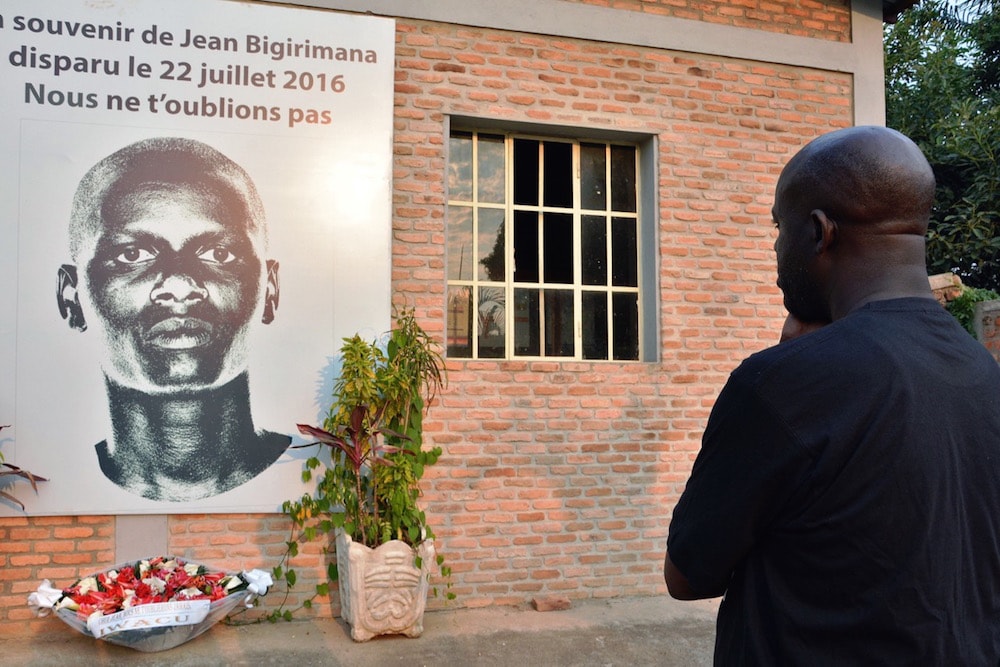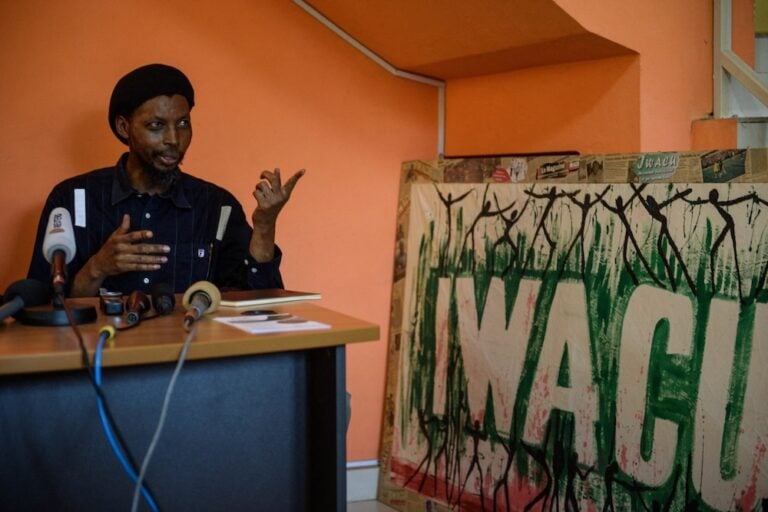The case of Burundian journalist Jean Bigirimana, who disappeared in 2016, remains unsolved.
This statement was originally published on cpj.org on 12 August 2021.
By Muthoki Mumo/CPJ Sub-Saharan Africa Representative
Five years ago, Abbas Mbazumutima led a team of journalists from the independent Burundian news outlet Iwacu in investigating a story no reporter should ever have to write – about the July 22, 2016 disappearance of their colleague, reporter Jean Bigirimana, who went missing shortly after receiving a call from an intelligence source.
The Iwacu journalists traced their colleague’s steps to Bugarama, a town in the central Muramvya province, where sources said that Bigirimana was last seen in the company of people thought to be intelligence personnel, Mbazumutima, Iwacu’s chief editor, told CPJ via email. In a remote river they found two decomposing bodies, one of which they feared was Bigirimana, he said. But authorities buried those bodies before they could be conclusively identified, leaving basic questions unanswered, Iwacu reported at the time.
Today, half a decade later, Bigirimana’s disappearance remains unsolved. Mbazumutima told CPJ he believes the journalist is dead while Bigirimana’s family continues to ask for DNA identification of the bodies, according to Iwacu.
Bigirimana worked at Iwacu for just a few weeks before he went missing, said Mbazumutima, who believes that an incident involving the journalist’s previous employer, Rema FM, may have been a factor in his disappearance. Rema FM is a ruling party-affiliated radio station that was temporary closed following a 2015 attack amid civil unrest that erupted when Burundi’s president sought a third term, precipitating an attempted coup, as CPJ documented at the time.
Mbazumutima told CPJ that Bigirimana had confided in him that he feared for his safety after individuals the journalist believed to be affiliated with the ruling party’s youth wing, the Imbonerakure, had accused him of conspiring to attack Rema FM.
According to Mbazumutima, the journalist’s accusers said that Bigirimana was implicated in the attack because he was related to a former official, Léonidas Hatungimana, who was later sentenced to life in prison in absentia for his alleged role in the coup attempt, according to the BBC and a court document reviewed by CPJ. Reached by CPJ via messaging app, Hatungimana, who is in exile, said he was unjustly convicted.
Hatungimana confirmed that he is the journalist’s uncle and that he knew that Bigirimana felt unsafe though did not have details of possible threats against his nephew. According to Mbazumutima, Bigirimana’s fear was so great that for a period of time before he worked at Iwacu, he fled into rural Bujurumba on a self-imposed “internal exile,” as the editor put it.
In an interview last month to mark the five-year anniversary of Bigirimana’s disappearance, Mbazumutima spoke to CPJ about why the incident involving Rema FM cannot be ignored, the journalist’s legacy, and the ongoing struggles for press freedom in Burundi. The interview has been edited for length and clarity.
CPJ sought response from Burundian officials regarding this interview; the requests are detailed below.
Do you think there are any links between the accusations that Bigirimana took part in the attack on his previous employer and his disappearance?
I think we cannot ignore those threats and also the fact that he was now working for Iwacu, which is not afraid to be critical. We must consider all these together, whether they contributed to his disappearance.
What was it like continuing to work in the Iwacu newsroom those days after he disappeared?
It was a shock. I was afraid. There was dead silence in the editorial office. There was this panic that paralyzes you. The sky had just fallen on us. When a female voice, I think, called us from Bugarama, where Jean had gone to meet one of his sources, to tell us that our friend had just been carted off in a pick-up truck with tinted windows, we thought it was over and that Jean was dead. Some journalists were even afraid to continue working, “so as not to suffer the same fate.” Did we recover from this disappearance? No, it is engraved on our hearts. It reminds us that our work is dangerous, that every report, every investigation is an achievement, and that we have to face certain fears to do a good job.



